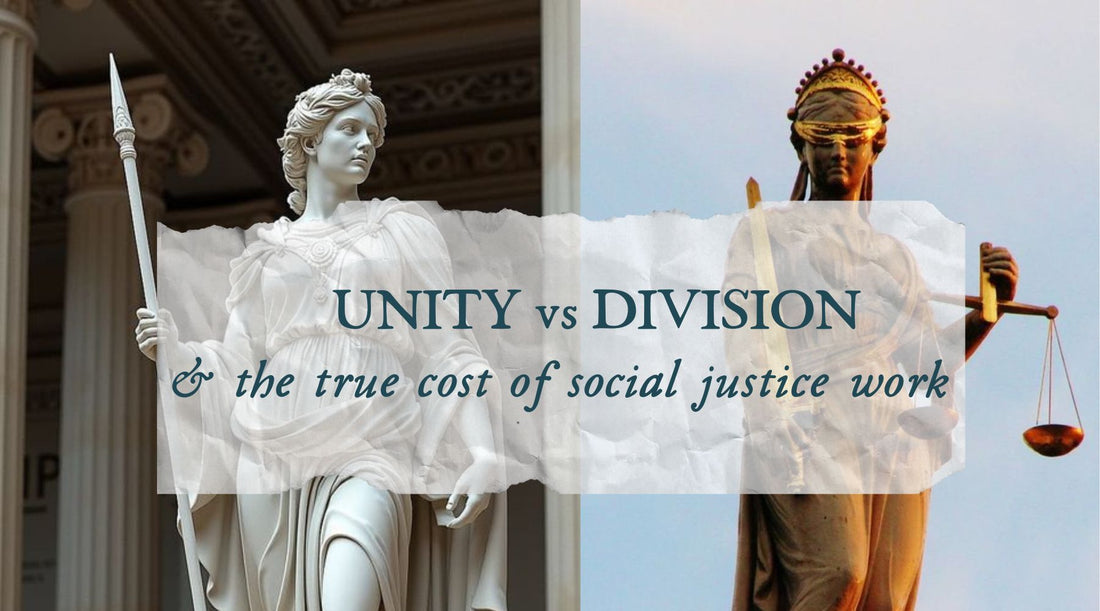
Unity vs Division, and the True Cost of Social Justice Work
Andrea RichardsonShare
I wrote this years ago after seeing a response online to an elected official’s bluntly honest delivery of some difficult facts. People were suffering and dying, and we were being called to take action to care for ourselves and our communities. The response I saw from a righteously upset individual on social media was that these statements were “divisive”. And that making statements that were divisive was very much the wrong thing for this elected leader to do. The person went on to talk about how much they cared about social justice. In fact, they had built a whole brand around valuing and loving people, and encouraging people to value and love themselves. So I took a minute to think - what is the connection between unity, divisiveness, and social justice? I came to this conclusion:
The work of social justice is inherently divisive.
Is our definition of “unity” an acquiescence to a status quo that continues to allow one group of people to suffer harm because it is more important that we maintain another group’s mental and emotional comfort? Is it even possible to fight for social justice without also causing divisiveness? Who pays the price of continued injustice while we maintain the comfort of perceived unity?
Being polite, quiet, and palatable for the sake of not being divisive feels very “don’t ask, don’t tell”, a policy we have long since abandoned. This policy requires the silence of those suffering in order order to maintain the illusion of peaceful coexistence between the marginalized group and the group upholding the systems that cause harm.
The work of social justice, in its pursuit to uplift those who are oppressed, marginalized, harmed, and shut off from opportunity, will inevitably cause discord and divisiveness. The work of social justice, in its striving to upset and dismantle entrenched systems and beliefs, will be unpopular. True social justice work will anger people. It will cause people to be upset and uncomfortable because previously held thoughts and beliefs will be challenged. People will be asked to change and grow on a personal level and translate those beliefs into different larger scale policies and behaviors. Some people will be held accountable for the harm they cause, in ways they have never been held accountable before.
Every world-changing social justice warrior I can think of has faced immeasurable backlash, hatred, vitriol, and violence from the societies they are trying to change. Once we memorialize leaders like Dr. King, for example, we seem to collectively forget how much his work actually angered people. The Civil Rights movement in the United States led to arrests, imprisonment, violence, and ultimately the death of Dr. King. His words were divisive, and in many ways, they continue to be divisive. It is incredibly dishonest to pretend that any movement, past or present, is not divisive. “Unity” can look like the touting of a shiny happy exterior while conveniently ignoring real suffering, harm, inequity, and injustice.
Are you willing to sacrifice the comfort and safety of unity in your pursuit of social justice? If not, I fear that you will be playing it very safe. And in truth, it takes a willingness to be divisive in order to be committed to social justice.
The hope is that we will collectively evolve so that this division does not last forever. Once controversial issues, like a universal right to vote, are now widely accepted (at least on the surface). It is my personal hope and goal that divisiveness on topics of universal human rights - and what even constitutes a human right - is a temporary part of the process to create a more just and equitable world.

